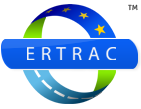Descrição
The air transport industry makes a significant contribution to the prosperity of Europe, both as a manufacturing sector and as an enabler of the effective transfer of people and goods.
The sector generates € 220 billion of direct added value for the EU economy representing some 2.6% of Europe’s GDP. Moreover, air transport is important to many other sectors (e.g. tourism) and the contribution of the sector to the EU’s wider economy is estimated to be well over 10%. To achieve this, the sector employs 3.1 million people, many of whom are highly skilled workers.
Site
Descrição
Europe’s railways provide a vital transport infrastructure supporting Europe’s citizens and businesses through passenger travel and the shipment of freight around the continent. However, a large part of the European network is already working to its maximum capacity and customer expectations are increasing in terms of speed, availability, comfort, punctuality, reliability, flexibility and traceability (freight). New technologies are needed in order to meet these demands and further enhance the role that railways play in providing reliable, affordable, safe and environmentally friendly transport for long and short distances.
Registo
http://workspace.errac.org/suscribe_v4.php?action=suscribe_step1
Descrição
ERTRAC was established to mobilize the stakeholders of the Road Transport System, to develop a shared vision and to ensure a timely, coordinated and efficient implementation of Research in Europe, with the objective to tackle the societal challenges of road transport and to enhance the European Competitiveness.
Registo
http://www.ertrac.org/en/content/members_23/
Descrição
The history of civilisation and commerce cannot be separated from waterborne transport. Trade of goods, travelling, exchange of knowledge, and the development of cities, regions and even civilisations, were in past centuries often only possible by means of waterborne transport.
Registo
http://www.waterborne-tp.org/index.php/registration
Descrição
Satellites around the globe send images of rain and windstorms heading our way, television news is beamed around the world by satellites, and we are guided to restaurants and theatres by satellite navigation. Europe is increasingly depending on space systems for many applications of daily use and others of high strategic value. Challenges of the sector include dependence on others for some critical space components, gaps in its development of future technologies and a limited commitment to security-related space activities.
Registo
http://estp.esa.int/exp/E10430.php





